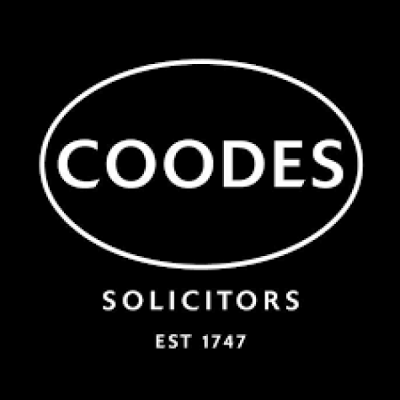Coodes Solicitors: What Legal Issues Will I Face If My Business Becomes Insolvent?
News and Blog
Coodes Solicitors commercial disputes lawyer Gareth White discusses some of the legal issues you may need to address during the insolvency process.
If your business is facing insolvency, you will undoubtedly have to address some legal issues, as well as dealing with your company finances. While your insolvency practitioner guides you through the insolvency process, you will also need advice from a specialist lawyer.
Every company will face a unique set of challenges and issues. However, there are some common legal matters that arise during the insolvency process. Having a basic understanding of these can really help. Crucially, addressing them by seeking advice at the earliest stage will give you the best chance of reducing the risks.
Wrongful Trading Claims
Any insolvent company faces the risk of wrongful trading claims. Wrongful trading is a statutory offence under the Insolvency Act 1986. It means that a company director, or directors, continued to trade after it was apparent that the company was going to become insolvent, causing loss to the company’s creditors.
During the Covid-19 pandemic there was a temporary freeze (called a moratorium) on wrongful trading claims, which has now been lifted. It is too early to say how the courts will treat any claims of wrongful trading that arose during this period.
Although wrongful trading claims are common and often relate to unintentional acts, they can have very serious consequences. Your lawyer’s role is to work with you to establish what the directors did and did not do that could risk claims from creditors. Getting legal advice early on, before your company becomes insolvent, means you can take steps to reduce the risk of wrongful trading claims by ensuring you act in the most responsible way possible. This will reduce the chance of you being ordered to pay damages to your creditors from your personal funds.
Directors Disqualification
The Company Directors Disqualification Act 1986 sets out the circumstances in which company directors could be disqualified for misconduct. During the insolvency process, you could face claims of your company directors failing to adhere to their duties. This could include allegations of wrongful trading, fraudulent trading or unfit conduct that contributed to the company’s financial difficulties.
A landmark case in 2020 demonstrated that disqualified directors could also be ordered to pay compensation. Kevin Eagling, former director of wine merchants Noble Vintners Limited was ordered to pay £559,484 to customers after being disqualified for misconduct.
Seeking legal advice at the earliest sign of trouble will give you the best chance of taking steps to act reasonably and avoid problems further down the line.
Employee Arrangements
If your company is facing insolvency, arrangements for your employees may well be front of mind. The best approach to take will depend on a number of factors and you will need an employment law specialist to advise you.
Broadly speaking, there are two likely outcomes for your staff. If the company goes into liquidation then they will lose their jobs. If the company goes into administration or a creditor’s voluntary arrangement and is sold to a new buyer your employees may retain their positions under a new employer. If the business is being bought out, you may need to carry out a TUPE transfer.
Getting specialist legal advice will help ensure you fulfil your duties to your employees.
Dealing with Property
Legal issues relating to property will depend on whether you own or rent your business premises. If you rent your property then your lease can potentially be assigned or cancelled. However, the cost of dealing with the lease may mean it is not viable to assign the lease. If you own any property, you can sell this as part of your restructuring.
The most important step you can take when you realise there is a problem is to seek professional advice. If your company is experiencing difficulties, don’t stick your head in the sand. That means speaking to an insolvency practitioner and instructing a lawyer. It’s also crucial to document your actions and minute every decision made at director level. If a court gets involved later, that will provide vital evidence that you acted reasonably on the advice you took.
Gareth White is a commercial disputes lawyer and insolvency litigation specialist in Coodes Solicitors Commercial Disputes team. You can contact him on 01872 246235 or gareth.white@coodes.co.uk
Purnells and Coodes have worked together to guide a number of company directors and business owners through the insolvency process.

Posted: 01/01/1970 01:00
